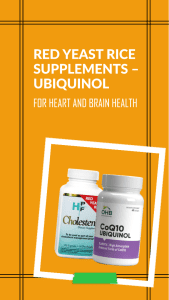Share
Why Testing for Cholesterol Misses the Biggest Markers of Risk
 TV commercials and doctors instruct us to worry about our cholesterol levels. While cholesterol used to be considered a risk factor for heart disease, it is far from today’s reality. . Other conditions such as diabetes, insulin resistance, metabolic syndrome, hypertension, and obesity are much more important than measuring LDL cholesterol. Ignoring these obvious, more important factors can have staggering consequences. Testing for cholesterol and even LDL just doesn’t tell doctors very much at all.
TV commercials and doctors instruct us to worry about our cholesterol levels. While cholesterol used to be considered a risk factor for heart disease, it is far from today’s reality. . Other conditions such as diabetes, insulin resistance, metabolic syndrome, hypertension, and obesity are much more important than measuring LDL cholesterol. Ignoring these obvious, more important factors can have staggering consequences. Testing for cholesterol and even LDL just doesn’t tell doctors very much at all.
Consider the risk factor ratios for Coronary Heart Disease as provided by Dr. Ken Berry

Here are the Risk Factors for Heart Disease by order of predictable significance
- Type II Diabetes
- Metabolic syndrome
- Hypertension
- Obesity
- Smoking
- Triglycerides
- Overweight
- LDL small particle size
- High C Reactive Protein
- Inactivity
Notice that Total Cholesterol and LDL cholesterol are not in the top ten. This is why testing for cholesterol puts the minutia ahead of the biggest parts of the elephant.
A growing group of doctors and health seekers express concern that the motivation to test cholesterol levels may not be entirely driven by a desire to improve heart health. Instead, many believe that the push to test for cholesterol is primarily fueled by big pharma’s interest in selling statin drugs. After all, it is the Number 1 selling class of drugs worldwide. This concern has led to questions about whether cholesterol testing is necessary or just a way for pharmaceutical companies to make money.
Lipid Profile Test: Cholesterol testing has become a routine part of preventive heart care, with doctors often prescribing statins to patients with high cholesterol levels. Statin drugs are now prescribed to people with normal cholesterol levels if there is a family history of heart disease. While statins effectively reduce cholesterol levels, they also have a range of side effects that can be unpleasant or even dangerous. More than likely, some simple changes to diet can be enough to bring cholesterol into a normal range. The other discomforting fact is that 50% of people with heart attacks have their cholesterol in a healthy normal range. Is there something else at play that we are not aware of?
Critics of the statin prescription approach argue it is like trying to judge an elephant by measuring its tail. In other words, reducing cholesterol levels with statins may be a small part of the solution to lowering heart disease risk, but not the most essential factor. Instead, addressing other critical health indicators like diabetes, insulin resistance, obesity, metabolic syndrome, and hypertension should be the focus of preventive heart care.
There is some controversy over what constitutes a healthy cholesterol level. The traditional view has been that lower cholesterol levels are better, but some experts argue that this approach ignores the fact that cholesterol is part of every cell in the body and necessary for life. . They suggest that there is no one-size-fits-all approach to cholesterol levels and that different people may have different optimal levels based on their health profiles.
So, what does this mean for patients? It means that before agreeing to statin prescriptions, you should have a honest discussion with your doctor about your overall health profile and any potential risks for heart disease. It is also essential to consider alternative approaches to reducing heart disease risks, such as lifestyle changes like exercise and diet modification, stress reduction, and metabolism. It’s easy to prescribe a pill, but if the drug addresses only symptoms and not the underlying causes, it can be a “shortcut that leads to hell.”
 Diabetes and pre-diabetes, for example, are significant health concerns often overlooked or diagnosed very late.This disease affects millions worldwide and is a leading cause of heart disease and stroke. People with diabetes have high blood sugar levels, which can damage blood vessels and increase the risk of heart problems. Diabetes is often undiagnosed and untreated, which can lead to severe complications. For people with diabetes, monitoring blood sugar levels and managing the disease is much more important than judging a person’s risk of heart disease by solely relying on cholesterol testing.
Diabetes and pre-diabetes, for example, are significant health concerns often overlooked or diagnosed very late.This disease affects millions worldwide and is a leading cause of heart disease and stroke. People with diabetes have high blood sugar levels, which can damage blood vessels and increase the risk of heart problems. Diabetes is often undiagnosed and untreated, which can lead to severe complications. For people with diabetes, monitoring blood sugar levels and managing the disease is much more important than judging a person’s risk of heart disease by solely relying on cholesterol testing.
Hypertension, or high blood pressure, is also a critical health concern. The response to a high blood pressure reading in the doctor’s office is to prescribe a pill without further investigating the root cause of the hypertensive disorder. Even 120/80 is no longer the universally accepted norm. The American Association of Family Physicians and the American Heart Association have two different standards.
The AAFP strongly recommends a standard blood pressure target of less than 140/90 mm Hg to reduce the risks of all-cause and cardiovascular mortality. The American Heart Association now says 120/80 is deemed high! It’s not a minuscule difference. It means doctors following the AHA will be prescribing hypertensive medication much more than physicians following the AAFP. Long-term use of hypertensive medications can have detrimental effects, primarily on kidney function. High blood pressure can be influenced by lifestyle and nutritional education, but it takes longer to accomplish that merely pushing down the numbers with a pill yet not addressing the root of the problem. If the root still exist, the problem will fester and rear its head again and again.
This will require more and more medications to keep the numbers looking good. Be sure to ask the all-important question, “What is the underlying cause, the root cause of my high blood pressure?”
Cholesterol is a critical component of the brain, and some studies have suggested that higher cholesterol levels may be associated with better cognitive function in older adults. Additionally, some research has indicated that statins may harm cognitive function, particularly in older adults. This has led some experts to question the wisdom of aggressively lowering cholesterol levels in older adults, particularly those with a history of cognitive impairment or dementia.
Science means being skeptical and continuously challenging the status quo. The cholesterol testing and management approach may need to be different for older adults than younger people. Older adults may need higher cholesterol levels to protect against cognitive decline, and aggressive statin use may not be the best approach for this age group.
This is one of the foundational reasons for getting adequate fatty fish in your diet or supplementing with True Omega-3 purified essential fatty acids are part of an optimal nutrition profile as we age. Our brains need not be robbed of the very essence of what makes us tick. Omega-3 will balance cholesterol and lower triglycerides.
What do you think?
Please watch Dr Sten Ekberg fully explain Cholesterol.










